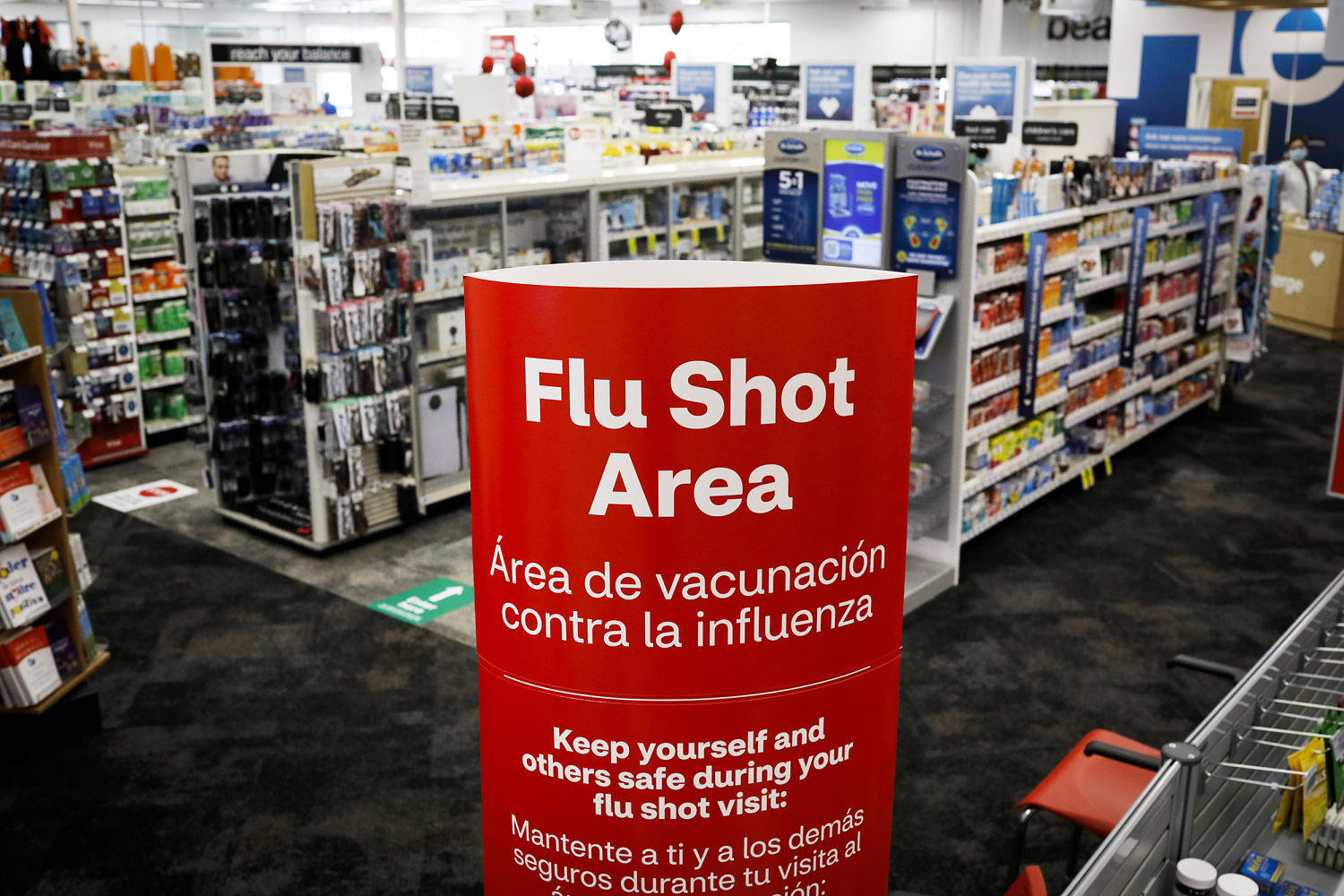[ad_1]

Flu cases are low nationwide, the Centers for Disease Control and Prevention reported Friday, but there are early signs that the virus is beginning to spread.
“Even these low levels will probably increase in the next couple of weeks,” said Alicia Budd, head of the CDC’s domestic influenza surveillance team.
That is typical for flu seasons, which tend to ramp up by December and peak in February. Budd said that the agency is not detecting the unusually early rise in flu activity that occurred last year, when kids and teenagers were hit especially hard.
Most of the flu cases reported so far this season are influenza type A, specifically the H1N1 strain.
A CDC report released Thursday found that children were “disproportionately impacted” by the flu last year. One of the study’s authors, Danielle Iuliano, also a senior research epidemiologist at the CDC, said that the numbers of flu-related pediatric doctors’ visits and hospitalizations were higher during the 2022-23 flu season than in previous years.
Nearly all of those cases were flu type A, mostly H3N2. Just under 20% were classified as H1N1.
“Given what we saw last year,” Iuliano said, “vaccinating kids is really important to prevent them from getting sick, prevent them from being hospitalized and having the most severe outcomes.”
Doctors recommend that everyone 6 months and older get an annual flu shot, and say that now is the time to make that appointment.
Latest on Covid, RSV and other viruses
“I tell my patients to get vaccinated by Halloween,” said Dr. Kristin Englund, an infectious disease physician at the Cleveland Clinic. It takes at least two weeks after getting the shot to make antibodies for the maximum possible protection.
“We want to make sure everybody is protected before the holiday season, and that starts with Thanksgiving,” Englund said.
Will there be a tripledemic?
Three bugs are likely to circulate this winter: flu, Covid and respiratory syncytial virus (RSV). There are early signs that those viruses are already spreading, though at relatively low levels, according to WastewaterSCAN. The group receives data from wastewater collection sites in 36 states three times a week, looking for evidence of viruses shed in sewage.
“We have started to see some increases in the rate at which we’re detecting flu across the country” as well as RSV, said Marlene Wolfe, an assistant professor of environmental health at Emory University and program director for WastewaterSCAN.
A late summer uptick in Covid seems to have peaked, Wolfe said. “But those levels are still quite a bit higher on average right now than they were in the middle of the summer,” Wolfe said.
Still, doctors urge people to do what they can to keep viral activity down as the U.S. heads into cold and flu season — including masking in some cases. Updated Covid shots and a new vaccine protecting pregnant women and older adults against RSV are available.
In anticipation of increases of Covid, RSV and the flu, the Cleveland Clinic will begin requesting that everyone visiting hospitalized patients wear a mask starting next week. It is not a mandate, however.
People “come here to get better, and not necessarily to get exposed to something new,” Englund said. “They certainly don’t need to be getting sicker from a visitor or a caregiver who might have any of these respiratory viruses.”
[ad_2]
Source link
